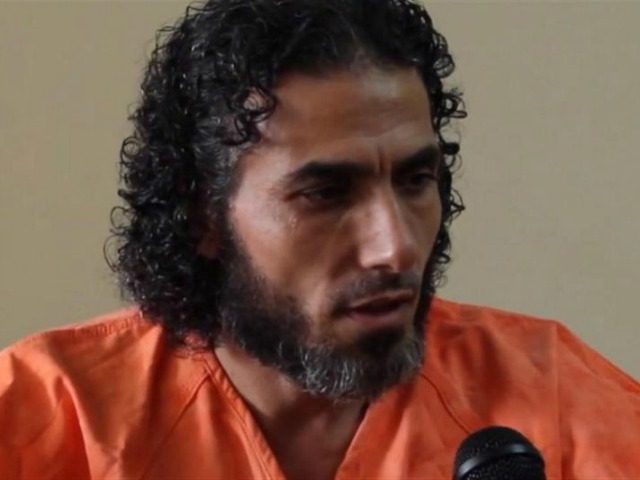Jihad Ahmad Diyab, a former Guantánamo Bay detainee who was released to Uruguay as part of a deal between the White House and the socialist government of former President José Mujica, has surfaced in Venezuela after his disappearance a month ago. He is demanding to be flown to Turkey to reunite with his Syrian family.
The Associated Press reports that Uruguayan officials have confirmed that Diyab has resurfaced at the Uruguayan consulate in Caracas, demanding to be sent anywhere but Uruguay, but preferring Turkey. “He expressed clearly that in no case was he interested in returning to Uruguay, but required the assistance of our country for his proposal,” the Uruguayan Foreign Ministry confirmed in a statement.
Uruguay had granted visas to Diyab’s family members to come live with him in the South American country, which will now be revoked, as he refuses to return. Diyab is not wanted by any government and free to travel to Turkey if he so chooses, but does not have the funds to do so and is requesting Uruguay pay for his flight.
The Uruguayan government has refused to pay his flight to Turkey, calling such a move “inappropriate” because of his repeated declarations that he would rather be anywhere else on earth but Uruguay. He is free to return to Uruguay at any point, however.
Diyab had been missing since late June, when he traveled to the Uruguay-Brazil border, allegedly to spend the end of Ramadan there. A report in early July suggested that Diyab had reached Venezuela, though it did not specify where in Venezuela he had arrived or why he chose that nation. Diyab allegedly told Uruguayan consulate workers that he had taken a bus out of Brazil to Venezuela.
Uruguay agreed to take six former Guantánamo Bay detainees in 2014, all of whom at some point in time have participated in protests against Uruguay. Their inability to speak Spanish made finding a job in the nation’s capital extremely difficult, and adjusting to Latin American culture proved a challenge. Some refused to get jobs or take government-provided Spanish lessons. Two of the men endured short-lived marriages, annulled after domestic abuse claims.
One Uruguayan official, shortly following Diyab’s disappearance, was quick to remark that the former jihadi detainee was “Brazil’s problem” now.
Kelly Keiderling, the American ambassador in Montevideo, has expressed concern with Diyab’s behavior. “Anyone like Diyab concerns us once they have been in Guantánamo,” she said, “In the security world, we do everything possible to understand what could be the threats and see if there are ways to mitigate them.”
Diyab, a Syrian national, was detained in Afghanistan for his association to “Libyan Islamic Fighting Group (LIFG), Lashkar-e-Tayyiba (LT), Ansar al-Islam, Harakat al-Mujahidin (HUM), and Harakat ul-Jihad-i-Islami (HUJI).” Years later, he would deny having ties to al-Qaeda at the time of his arrest. However, he later said, “With the bad treatment I’ve received, I like Al Qaeda now.” He was repeatedly described as “the most combative” of the detainees, having traveled to his mother’s native land, Argentina, to demand the United States pay him for his time in Guantánamo.
Diyab can only walk with crutches and does not speak Spanish or English, making him a conspicuous target, as officials noted shortly after his disappearance in June.
The government of Venezuela under socialist President Nicolás Maduro has been repeatedly accused of ties to jihadist organizations, particularly the Iran-backed Shiite terrorist group Hezbollah.
Authorities have not yet told the media whether they have a plan for shipping Diyab to Turkey, or whether the Venezuelan government will pitch in to transport him to the Middle East. In Turkey, Diyab would find a tumultuous political climate, where Islamist President Recep Tayyip Erdogan has arrested tens of thousands in relation to a failed coup attempt against him earlier this month.

COMMENTS
Please let us know if you're having issues with commenting.